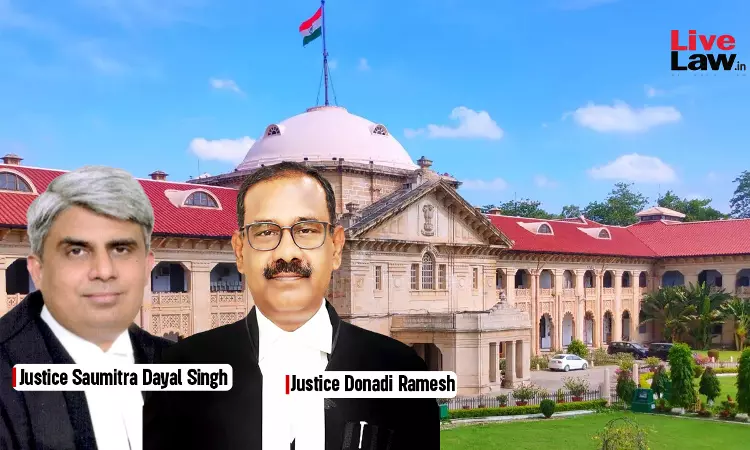Family Pension Under High Court Judges Act Applicable To Chairperson Of State Law Commission: Allahabad High Court
Upasna Agrawal
23 Oct 2024 11:18 AM IST

Next Story
23 Oct 2024 11:18 AM IST
The Allahabad High Court has held that “family pension” rules under the High Court Judges (Salaries and Conditions of Service) Act, 1954 and the Rules framed thereunder will be applicable to the pension awarded to the Chairperson of the State Law Commission under the Uttar Pradesh State Law Commission Act, 2010.The bench of Justice Saumitra Dayal Singh and Justice Donadi Ramesh held...
